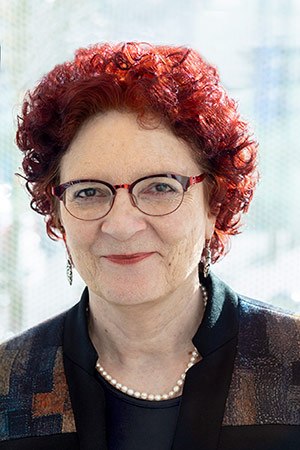Introduction
Introduction by the Director
 Year 2021 was the second full year of COVID-19 pandemic, and
I would like to start with thanking colleagues in Member
States for their contributions and for their openness in the
dialogue, all the colleagues and partners in the EU and
beyond for their collaboration during the year, and all ECDC
staff for their stamina and dedication.
Year 2021 was the second full year of COVID-19 pandemic, and
I would like to start with thanking colleagues in Member
States for their contributions and for their openness in the
dialogue, all the colleagues and partners in the EU and
beyond for their collaboration during the year, and all ECDC
staff for their stamina and dedication.
In my view this Consolidated Annual Activity Report describes very well all aspects of the work ECDC conducted in 2021; the COVID-19 response under the PHE modus operandi, the non-COVID-19 related scientific work, and the work ensuring that the organisation functions smoothly, effectively, and efficiently respecting the regulatory boundaries in place.
I would like to elaborate on two areas of COVID-19 related actions, which defined largely the ECDC work during the year 2021 and also provided possibilities for the future.
The first one is the emergence of new variants of the SARS-CoV-2 and the need to ensure that the capacity to detect possible new variants early enough and to monitor them exists in the EU/EEA countries. To this end the European Commission tasked ECDC to support countries to improve their capacities and capabilities on whole genome sequencing (WGS). In September 2021, ECDC awarded more than 77 M€ to 24 EU/ EEA countries in grants, based on the proposals from the countries to strengthen WGS and diagnostic infrastructures. I would like to thank all parties involved for co-creating and implementing this important action, which is also a preparedness investment for the future.
The second is related to the COVID-19 vaccine uptake in the countries, as in 2021 COVID-19 specific vaccines entered the market and immunisation programmes became a cornerstone in the fight against the spread of the SARS-CoV-2. Supporting countries to reaching the EU target set for the vaccine coverage became one of the main goals of ECDC work and bringing the knowledge of behavioural science to counteract vaccine hesitancy and disinformation around vaccines and immunisation was an important part of it. Therefore, an initiative aimed at supporting the 11 Member States with COVID-19 vaccination uptake lower than the EU average was taken. A series of bilateral meetings were held with the relevant authorities and experts, and follow-up activities were developed. In this context I visited three countries, which provided me with good insights on the issues countries encounter in increasing the vaccine uptake. These activities will continue in 2022.
For me these two COVID-19 related activities have shown new ways how ECDC can come closer to the Member States and find novel ways of working together, based on the needs expressed by countries. We will take learnings from these activities and develop further the modalities for ECDC work, in particular in the context of the implementation of ECDC amended Founding Regulation, once agreed upon.
The pandemic has also shown the importance of having international partners to exchange information in a swift and transparent manner. In 2021 ECDC concluded three important bilateral agreements, namely with the Ministry of Health of Mexico, the Health Security Agency of the United Kingdom, and the Korea Disease Control and Prevention Agency. Furthermore, 2021 was the starting year of the development of a long-term partnership with the Africa CDC in the form of a joint project covering areas of preparedness, surveillance, and workforce capacity building, financed by the Commission.
I believe that the work carried out in 2021, and the variety of discussions we have been able to conduct with our main partners and stakeholders (e.g., during the third Joint Strategy Meeting) will help us in the implementation of amended mandate and in transforming the organisation to be ready for the future challenges.
Andrea Ammon
ECDC Director
4 March 2022